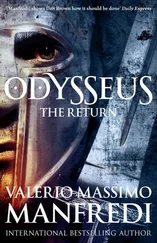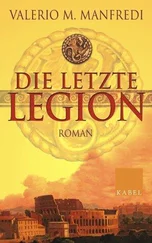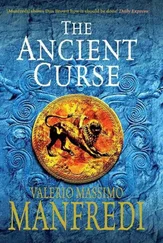Valerio Manfredi - Heroes
Здесь есть возможность читать онлайн «Valerio Manfredi - Heroes» весь текст электронной книги совершенно бесплатно (целиком полную версию без сокращений). В некоторых случаях можно слушать аудио, скачать через торрент в формате fb2 и присутствует краткое содержание. Жанр: Исторические приключения, на английском языке. Описание произведения, (предисловие) а так же отзывы посетителей доступны на портале библиотеки ЛибКат.
- Название:Heroes
- Автор:
- Жанр:
- Год:неизвестен
- ISBN:нет данных
- Рейтинг книги:3 / 5. Голосов: 1
-
Избранное:Добавить в избранное
- Отзывы:
-
Ваша оценка:
- 60
- 1
- 2
- 3
- 4
- 5
Heroes: краткое содержание, описание и аннотация
Предлагаем к чтению аннотацию, описание, краткое содержание или предисловие (зависит от того, что написал сам автор книги «Heroes»). Если вы не нашли необходимую информацию о книге — напишите в комментариях, мы постараемся отыскать её.
Heroes — читать онлайн бесплатно полную книгу (весь текст) целиком
Ниже представлен текст книги, разбитый по страницам. Система сохранения места последней прочитанной страницы, позволяет с удобством читать онлайн бесплатно книгу «Heroes», без необходимости каждый раз заново искать на чём Вы остановились. Поставьте закладку, и сможете в любой момент перейти на страницу, на которой закончили чтение.
Интервал:
Закладка:
Elsewhere, the earth was scourged by storms of wind and rain, flooded by torrents and rivers that overflowed their banks, inundating the countryside with mud that rotted when the sun rose over the horizon. That decay generated an endless number of repugnant creatures: toads, salamanders and serpents that spread everywhere, infesting the fields, the pathways and the dwellings of men. Animal carcasses were abandoned by the rivers to rot along the shore as the waters subsided, attracting crows and vultures which filled the sky with their shrieking by day and jackals which let out their mournful howls by night.
Only the sea seem to be spared these disasters: her clear waters continued to nurture every kind of fish, as well as the gigantic creatures of the abyss. And trade continued as well on the paths of the sea, albeit greatly diminished. Thus, many peoples entrusted their destinies to the sea, preferring to face the unknown rather than wait in their own lands to die of starvation, hardship and disease. Others, who already inhabited the seas, gave themselves over to raiding and piracy.
A sort of coalition was formed, joining the Peleset and the Shekelesh , the Lukka and the Teresh , the Sherdan and the Derden , and many other peoples as well. They were warmongers, desperate, ready for anything, and they decided to try their luck against the richest, most prosperous and powerful nation of the earth: Egypt. They did not know that the land of the Nile had been stricken by the same scourges, although there the wisdom of the priests and the architects, the patience of the people, and the strength of their sovereign had managed to attenuate the frightful effects.
They say that a group of Achaeans joined forces with this coalition as well; these were the Spartan warriors of Menelaus that a strange destiny had dragged to those distant regions.
The night in which they had disappeared from sight, Menelaus’s ships sailed in the direction of Delos. His men were told that the queen had convinced him to consult the oracle of Apollo, the god who had protected the Trojans during the war. The king sought to know what sacrifices of expiation he must perform for having taken part in the destruction of the city, in order to escape the ire of the god who would otherwise have annihilated them.
Apollo had answered that they would have to offer a sacrifice in the land of Danaus, and then consult the oracle of the Old Man of the Sea on the deserted shores of Libya. The land of Danaus was Egypt; Menelaus decided to set sail at midday along with his entire fleet, and thus he left the land of the Achaeans behind him, as his brother Agamemnon went to his death.
The gods who know all and see all perhaps allowed Menelaus, lost in the arms of Helen, to hear the last gasp of his dying brother; perhaps they passed on, in a cold shiver, the stab of the sword that cut the throat of the great Atreid. And when the king abandoned himself to the act of love, he was invaded by the same chill of death, by the same terror of infinite emptiness.
The fleet crossed the sea, sailing with favourable winds for eight days and eight nights until they came within sight of the coast, near the western mouth of the Nile. But as fortune or chance had it, in those very days a multitude of other ships were present there. The Peoples of the Sea; the Peleset and the Lukka , the Derden and the Teresh , the Shekelesh and the Sherden , were attacking Egypt as allies of the Libyan king Mauroy.
Pharaoh Ramses, the third of this name, decided boldly to counter-attack rather than to wait for the clash with the enemy; he sent out his fleet from the western branch of the Nile and from the eastern branch of the Nile and moved them out to sea on both sides, exploiting the land wind of the early morning. Menelaus’s army, finding themselves in that place by mere chance, were attacked from the west before they could establish any contact, and they were forced to defend themselves. His warriors, accustomed to years and years of fierce fighting, drove back the attackers several times, but a steady stream of Egyptian ships continued to descend from the mouth of the Nile. To their left, a group of Sherden vessels full of warriors with round shields and conical helmets adorned with ox horns were battling tenaciously against a number of Egyptian ships which manoeuvred with great expertise in the shallow waters along the coast. In the skirmish that ensued, the Sherden ventured too close to the shore and ran aground on the shoals. They were shortly surrounded on all sides and massacred.
Menelaus could not understand what was happening: wherever his gaze fell, the sea teemed with ships and warriors from every nation. But although their number was enormous, they were thrown into confusion because they could not communicate; there was no one giving precise orders that could be heard by all. The Pharaoh’s fleet, on the contrary, moved with supreme skill in those treacherous waters. They separated into squads, only to join back together again like a phalanx on a battlefield. Most of the heavy Egyptian warships continued to fan out towards the open sea; their crews exchanged signals by hoisting cloths of various colours on their ladder masts and by sending flashing light signals using their gleaming copper shields.
His men tried to convince Menelaus to engage in battle with all he had; they thought that if the coalition were victorious they would be able to divide up the booty and return to Sparta with immense riches, but Menelaus feared the loss of his fleet in those dangerous waters and signalled for his crews to get out as soon as it became possible.
Those who could did so, but some of the ships had penetrated too far into the enemy formation, and were forced to fight so as not to succumb. Some ships were set aflame by incendiary arrows and had to be abandoned. Their crews perished or ended their days in slavery, labouring over the construction of colossal monuments in the land of Egypt. Menelaus attempted to break through the encirclement with the surviving ships, but his was a hopeless endeavour. A vigorous sea wind had picked up and it drove his ships, together with the vessels of the coalition, towards the shore and against the sandy shoals. The Egyptian fleet, which had taken advantage of the morning land wind to move out to sea, now had the sea wind aft and closed in on the invaders like a pair of pincers, forcing them into the shallow waters of the delta.
Menelaus managed to save his ship thanks to the strength of his rowers, who struggled against the wind and propelled the ship against the Egyptian fleet. They rammed the side of a great vessel and sank it, then led the surviving ships of their fleet out to sea through the breach. The helmsman, an old sailor from Asine, realized that the sea wind was shifting west, and he had the sail hoisted immediately, as the other crews followed his example. The ships picked up a certain speed and, although they risked capsizing aport, they held their course until they reached an island where they could take shelter.
Meanwhile, the Peleset had succeeded in breaking through the encirclement on the east side of the formation, and escaping to the open sea. Some ships put out to sea, while others, most of them, retreated to the Chnan coast and settled between Gaza and Joppa. They gave this land the name of Palestena.
But the rest of the coalition fleet found no way out; driven on to the sand and the mud of the delta, the hulled ships ran aground while the light Egyptian craft, nearly all made of papyrus, easily drew up alongside them. The bundled stems used to build the pharaoh’s ships were soaked with water and would not catch fire. Their high prows and high sterns allowed them to navigate the waters of the sea, while their flat bottoms and pliable structure let them slip over the shallowest of shoals with the agile movements of a water snake.
Читать дальшеИнтервал:
Закладка:
Похожие книги на «Heroes»
Представляем Вашему вниманию похожие книги на «Heroes» списком для выбора. Мы отобрали схожую по названию и смыслу литературу в надежде предоставить читателям больше вариантов отыскать новые, интересные, ещё непрочитанные произведения.
Обсуждение, отзывы о книге «Heroes» и просто собственные мнения читателей. Оставьте ваши комментарии, напишите, что Вы думаете о произведении, его смысле или главных героях. Укажите что конкретно понравилось, а что нет, и почему Вы так считаете.












